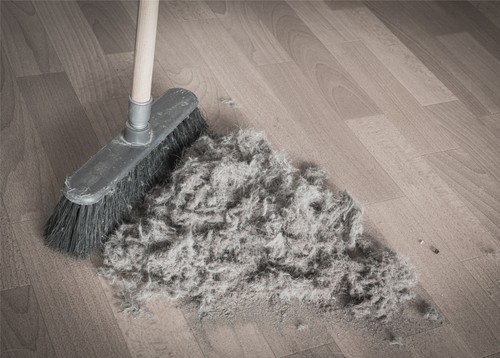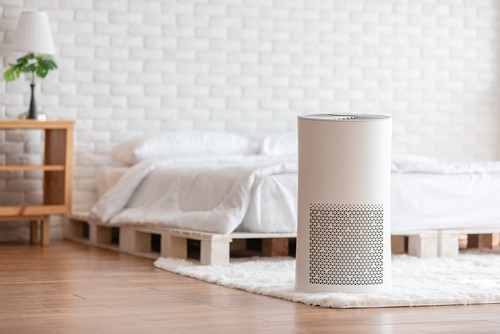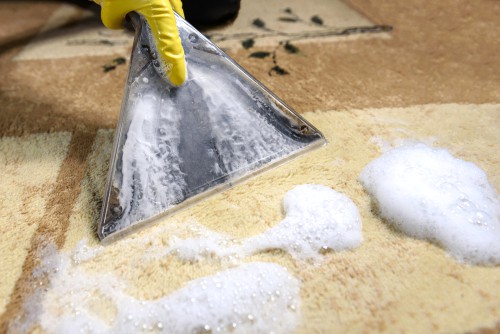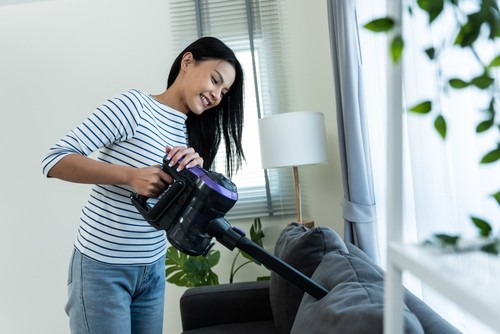
Coping with Allergies: Cleaning Tips for Sensitive Individuals. Allergies in modern living environments present a unique challenge, especially within the confines of our homes.
Coping with allergies requires a strategic approach to cleaning aimed at minimizing the presence of common indoor allergens.
This comprehensive guide offers detailed insights and practical tips to create an allergy-friendly home, ensuring comfort and health for those with sensitivities.
Understanding Allergies in the Modern Living Environment
Indoor allergens, such as dust mites, pet dander, mold spores, and pollen, are prevalent in most homes.
These tiny particles can easily become airborne and are known to trigger allergic reactions in sensitive individuals.
Allergies can significantly impact daily life, leading to symptoms like sneezing, itchy eyes, respiratory difficulties, and even skin irritations.
Managing these allergens effectively is crucial for maintaining a comfortable and healthy living environment.
The Basics of Allergy-Friendly Cleaning
Allergy-friendly cleaning focuses on reducing or eliminating the presence of allergens.
This involves using specific cleaning methods and selecting appropriate, non-irritating cleaning agents.
The primary goal is to remove allergens without introducing new irritants. Regular cleaning, using the right tools, and opting for natural or hypoallergenic products are key.
Identifying Common Indoor Allergens

Dust mites thrive in warm, humid environments and are commonly found in bedding, upholstered furniture, and carpets.
Pet dander, another common allergen, can be found in homes with animals, clinging to surfaces and becoming airborne.
Allergens are typically found in areas prone to dust accumulation or dampness. Carpets, bedding, upholstered furniture, and even window treatments can harbor these irritants.
Effective Cleaning Strategies
Regular Cleaning Routines to Reduce Allergens
Cleaning should be done at least weekly. Use a vacuum cleaner with a HEPA filter to trap allergens effectively, and damp mop hard surfaces to prevent dust from becoming airborne.
Choosing the Right Cleaning Supplies
Select hypoallergenic cleaners and avoid products with fragrances or harsh chemicals. Microfiber cloths are excellent for trapping and removing allergens without chemical cleaners.
Natural and Chemical-Free Alternatives
Natural cleaning solutions, such as vinegar, baking soda, and certain essential oils, can effectively reduce allergens without irritating them.
Deep Cleaning for Allergen Reduction
Deep cleaning should focus on areas where allergens accumulate. Wash bedding regularly in hot water, vacuum carpets thoroughly, and clean upholstery and curtains to remove trapped allergens.
Technology and Allergy Management

The Role of Air Purifiers and Filters
Air purifiers equipped with HEPA filters can significantly reduce the concentration of airborne allergens, providing relief for allergy sufferers.
When choosing an air purifier, consider the size of the room, the type of filter, and the unit’s clean air delivery rate (CADR) to ensure effectiveness.
Smart Cleaning Gadgets and Tools
Innovations like robot vacuums can help maintain a regular cleaning routine, while smart air quality monitors can alert you to changes in indoor allergen levels.
Personal Protection During Cleaning
When cleaning, wearing a mask and gloves can help minimize exposure to allergens. Ensure good ventilation in the space to reduce the concentration of airborne irritants.
Plan cleaning during times when allergy symptoms are less severe. Using a damp cloth can also help trap dust and prevent it from becoming airborne.
Organizing and Decluttering for Allergy Control
A clutter-free environment reduces the surfaces where dust and allergens can accumulate. Regularly decluttering and organizing can significantly improve allergy management.
A minimalist approach in home decor reduces the number of items that can harbor allergens. Opt for easy-to-clean surfaces and furnishings to simplify your cleaning routine.
Managing Soft Furnishings and Fabrics

Regularly wash or vacuum curtains, carpets, and upholstery. Consider replacing high-pile carpets with low-pile or hard flooring, which makes it easier to keep allergen-free.
Choose allergy-friendly materials for furnishings. Leather, vinyl, and washable fabrics are good alternatives to traditional upholstery that can trap allergens.
Lifestyle Adjustments for Allergy Sufferers
Modifying home decor and arrangement, such as using air purifiers and maintaining optimal humidity levels, can create an allergy-friendly living space.
Daily habits, like removing shoes at the door and regularly washing hands, can reduce the introduction and spread of allergens in the home.
For pet owners, regular grooming of pets and cleaning of pet areas are crucial. Designate pet-free zones, especially in bedrooms, to minimize allergen exposure.
FAQ

How can I effectively reduce dust mite populations in my home?
To minimize dust mites, regularly wash bedding in hot water, use allergen-proof mattress and pillow covers, vacuum carpets and upholstery with a HEPA filter vacuum, and maintain low humidity levels in your home.
Are air purifiers helpful for people with indoor allergies, and how do I choose the right one?
Yes, air purifiers can be beneficial. Choose an air purifier with a HEPA filter designed for the size of the room where you’ll use it. Look for models that effectively remove the types of allergens you’re sensitive to, such as pet dander, dust mites, or pollen.
What are some natural cleaning solutions that are safe for allergy sufferers?
Natural cleaning solutions include diluted white vinegar for surfaces, baking soda for scrubbing, and a mixture of water with a few drops of essential oils like eucalyptus or tea tree oil for their natural antimicrobial properties.
How often should people with allergies clean their homes to keep symptoms at bay?
It’s recommended to dust and vacuum at least once a week. However, those with severe allergies may benefit from more frequent cleaning, especially of high-traffic areas and surfaces like floors, bedding, and upholstery.
What are the best cleaning practices for pet owners who have allergies?
For pet owners with allergies, it’s important to bathe and groom pets regularly to reduce dander.
Vacuum frequently using a HEPA filter vacuum, wash pet bedding weekly, and keep pets out of bedrooms and other areas where you spend a lot of time.
Can changing my home’s air filters reduce allergy symptoms?
Yes, regularly changing air filters in your home’s heating and cooling systems can help reduce airborne allergens. Use high-efficiency filters designed to trap smaller particles for the best results.
What type of vacuum cleaner should I use if I have allergies?
Choose a vacuum cleaner with a HEPA filter, as it can trap small particles like pollen, dust mites, and pet dander more effectively than standard vacuums.
Are there specific fabrics or materials I should avoid in my home decor to reduce allergens?
Avoid heavy drapes and high-pile carpets, as they can harbor allergens. Opt for easy-to-clean fabrics and materials, like leather, wood, metal, or washable curtains and rugs.
How do I manage mold allergies in my home?
To manage mold allergies, reduce moisture in areas like bathrooms and kitchens with proper ventilation. Clean visible mold with a mixture of water and vinegar, and keep indoor humidity levels below 50%.
Is it better to dust with a wet cloth or a dry duster for allergy control?
Unlike a dry duster, it’s better to dust with a damp cloth as it traps and removes dust without scattering it into the air.
Coping with Allergies: Cleaning Tips for Sensitive Individuals – Conclusion:

Adopting an allergy-friendly cleaning routine is crucial for those suffering from allergies.
Allergy sufferers can improve their living environment by understanding common allergens, utilizing effective cleaning strategies, and making lifestyle adjustments.
Embracing these practices not only helps in managing allergies but also contributes to a cleaner, healthier lifestyle. It’s about taking proactive steps towards creating a safe and comfortable home for everyone.
Are you seeking a professional and reliable house cleaner in Singapore? Contact us today!
